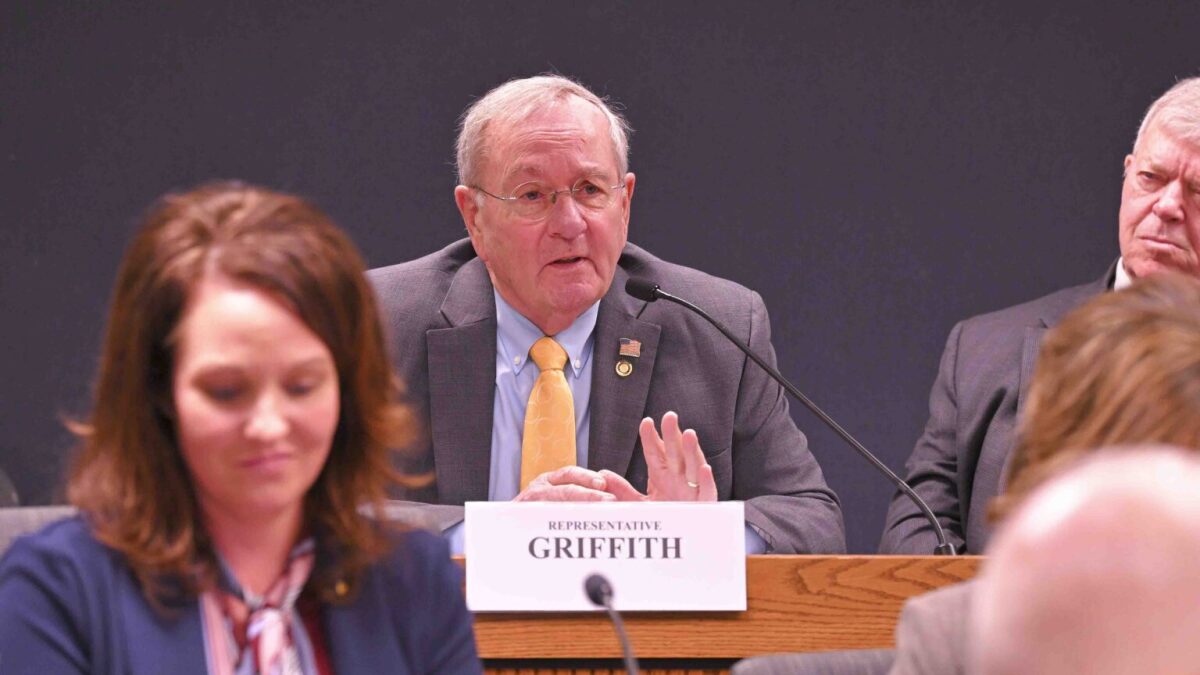[[{“value”:”
The Missouri Veterans Commission has received $80 million from sales taxes collected from marijuana dispensaries and other fees since the state’s cannabis program began in 2020.
Of that, $33.8 million has come in during the current fiscal year, which began in July and ends June 30.
The money goes towards the operational needs of the state’s seven veterans homes, including payroll and maintenance of existing infrastructure, a commission spokeswoman said.
While it may appear that the money is a big boon for veteran homes across the state, the cannabis funds have rolled in just as revenue from casinos has rapidly dropped off, said Democratic state Sen. Steve Roberts of St. Louis, who is vice chair of the commission.
The commission receives funds from the $2 fee people pay to enter a casino, he said, but those numbers have declined significantly since the pandemic. The marijuana funds are helping fill that hole, he said, but money for the state’s veterans home remains in limbo every year.
“We still need to find a mechanism to ensure that (veterans homes) have the funding they need,” Roberts said, “because just with the casinos and marijuana funds, it’s not enough. And it’s forcing the commission to continue to have to go back to the legislature to ask for additional money.”
Republican state Rep. Dave Griffith of Jefferson City, who is also a board commissioner, compared the situation to a business unable to make a long-range plan.
“The Missouri Veterans Commission can’t do that,” Griffith said. “They have to go from year to year to year to see what is appropriated by the General Assembly.”
He disagrees with House members who believe that marijuana funding is the solution, he said, and that general revenue can be appropriated elsewhere.
“The Senate actually has done a better job of taking care of the veterans commission and some of the properties that we’ve got,” Griffith said. “It’s frustrating for me that it seems like every time we want to try to do something for veterans, we’re looking at vices — gambling and drug use.”
Missourians voted in November 2018 to adopt a constitutional amendment legalizing medical marijuana, and it also requires fees and taxes generated by the program, minus operational expenses, be transferred to the commission.
Then in 2022, voters approved another amendment to legalize adult-use marijuana. With these sales, revenues from taxes and fees are divided between three causes: grants for substance use prevention, the public defenders system and the veterans commission.
Missouri Independent
The Division of Cannabis Regulation transfers funds from medical marijuana sales tax revenues and fees to the Missouri Veterans Commission. Similarly, the division transfers funds from adult-use cannabis sales tax revenues and fees to the commission, Missouri Public Defender System and DHSS for its substance use disorder grant program.
In fiscal year 2024, the commission received $19.4 million between both medical and adult-use sales, and $33.8 million in 2025.
In the fiscal year that begins in July, the commission is set to receive $32.6 million.
However, future funding depends on the health of the cannabis industry, which can experience ups and downs, Griffith said.
Both Roberts and Griffith said they’re committed to finding more stable funding for veterans.
“We’re very fortunate that this is a bipartisan issue,” Roberts said. “There are veterans homes in Democratic and Republican districts, and all the senators I’ve talked to seem to be very supportive.”
Roberts pointed to Gov. Mike Kehoe’s State of the State address in January, where he addressed the underfunding of the homes and need for continued support.
“Under the Kehoe administration,” the governor said, “no veterans homes will close due to a lack of state funding.”
This story was originally published by Missouri Independent.
“}]] Revenue from marijuana sales has gone up, but fewer people are going to casinos in Missouri. That means funding that goes toward operational needs of the state’s seven veterans homes is still ‘year to year to year,’ according to lawmakers. Read More


